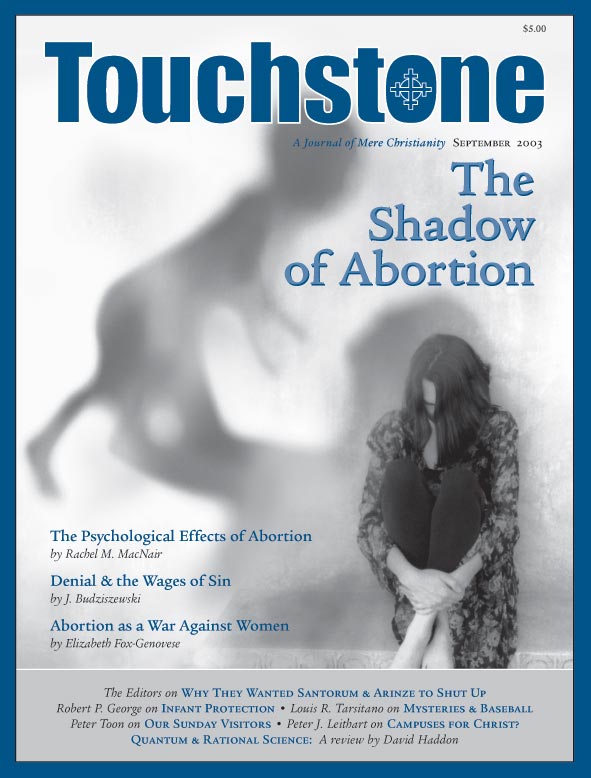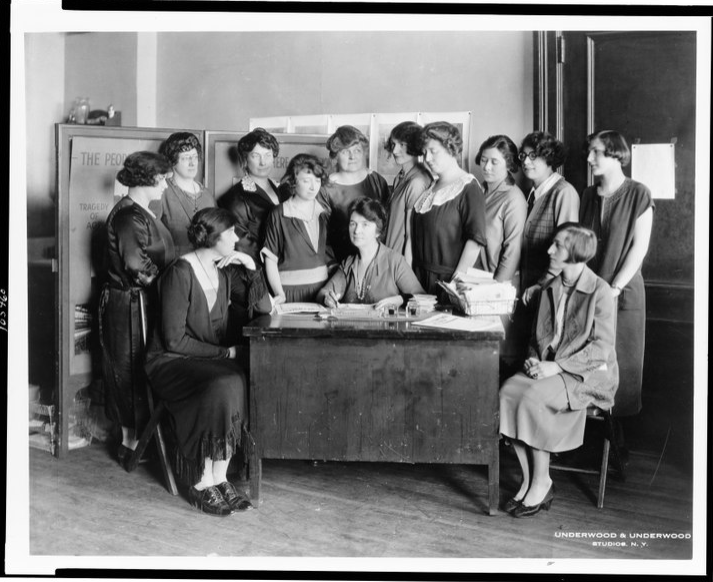Dissent as Orthodoxy
If one listens long enough to people claiming to be oppressed, eventually one often hears a demand not just for liberation but for the right to oppress the alleged oppressors. Events this spring at Georgetown University in Washington, D.C., a Jesuit institution, bear this out.
In June, Francis Cardinal Arinze, head of the Vatican’s Office of Divine Worship, gave the commencement address at Georgetown. As is customary at such affairs, he urged the graduates not to be narrowly materialistic but to cultivate spiritual goods in their lives. In particular, he exalted loving family life. So far, so good.
But in one paragraph of a brief speech, Cardinal Arinze noted also that the family has enemies and that the phenomena of abortion, homosexuality, contraception, infanticide, euthanasia, adultery, and pornography undermine its sacredness. At that, Georgetown’s roof caved in.
Seventy faculty members sent a letter to university officials protesting the cardinal’s “inappropriate remarks,” and one professor, a former Jesuit priest who now presents himself as a priest of “the American Catholic Church” and who blesses “gay marriages,” was especially offended. A dean then lamely replied that the cardinal “had not tried to hurt anyone,” but “that doesn’t mean it didn’t happen,” and she promised to meet with all those who might have been “hurt.” Judging from her comments, it is a fairly safe bet that, if Georgetown officials had to do it over again, they would not invite Cardinal Arinze.
For years, religiously affiliated universities have routinely invited to campus speakers who are openly pro-abortion or otherwise at odds with traditional Christian moral teaching. The inevitable protests are met with a standard defense of “academic freedom,” the claim that a university is supposed to be a place where all questions can be discussed freely. But Georgetown was unable to affirm that principle in the case of Cardinal Arinze.
If academic freedom has any meaning, it cannot mean that people have a right not to have their feelings hurt by certain ideas. On the contrary, the usual argument is that controversial ideas are the only kind that need the guarantee of freedom. If Georgetown’s speaker had, for example, denounced the pro-life movement, liberals in the university would be praising the speech as an act of courage and honesty.
Universities with a history of religious affiliation have supposedly come a long way towards educational maturity, and indeed they have—all the way to the point where, as do their secular counterparts, they regard the suppression of ideas as a legitimate, even necessary, condition of freedom. (Anyone who can understand that is qualified to run a modern university.)
Most of those offended by Cardinal Arinze’s remarks presumably reject Catholic teachings on the moral subjects he briefly cited. Usually, such people are called “dissenters,” sometimes even “heretics,” although the latter term has fallen into desuetude.
But such terms have long been misnomers. Dissent, properly understood, means recognizing that there is such a thing as orthodoxy but disagreeing with it. The dissenter is then someone who has chosen to occupy a rather marginal place in the religious community. Today’s theological dissenters, however, have set themselves up as definers of a new orthodoxy.
Cardinal Arinze is the highest-ranking African prelate in the Catholic Church and is often mentioned as a possible future pope. But amazingly, according to his critics, he has no right to appear at a professedly Catholic university and, however briefly, affirm official Catholic doctrine. The dissenters have moved from claiming the right to disagree to insisting that no one has a right to affirm those teachings with which they disagree. Orthodox ideas are not to be protected against the attacks of dissenters, but dissenters are to be protected even from the mildest affirmations of orthodoxy.
Political correctness can sometimes be amusing, as one tries to figure out the pecking order of approved attitudes. Cardinal Arinze seems particularly to have offended homosexuals, in the same way that the Anglican bishops of Africa have offended English and American Anglicans who support homosexuality. While liberal white Westerners most of the time seem to think that they have no right to question the judgments of “third world” peoples, we now know that the orthodoxy of homosexuality trumps even the orthodoxy of race, to the point where liberal Westerners end up sounding like imperialistic racists in their denunciations of the “backwardness” of African opinion.
James Hitchcock is Professor emeritus of History at St. Louis University in St. Louis. He and his late wife Helen have four daughters. His most recent book is the two-volume work, The Supreme Court and Religion in American Life (Princeton University Press, 2004). He is a senior editor of Touchstone.
subscription options
Order
Print/Online Subscription

Get six issues (one year) of Touchstone PLUS full online access including pdf downloads for only $39.95. That's only $3.34 per month!
Order
Online Only
Subscription

Get a one-year full-access subscription to the Touchstone online archives for only $19.95. That's only $1.66 per month!
bulk subscriptions
Order Touchstone subscriptions in bulk and save $10 per sub! Each subscription includes 6 issues of Touchstone plus full online access to touchstonemag.com—including archives, videos, and pdf downloads of recent issues for only $29.95 each! Great for churches or study groups.
Transactions will be processed on a secure server.
more from the online archives
calling all readers
Please Donate
"There are magazines worth reading but few worth saving . . . Touchstone is just such a magazine."
—Alice von Hildebrand
"Here we do not concede one square millimeter of territory to falsehood, folly, contemporary sentimentality, or fashion. We speak the truth, and let God be our judge. . . . Touchstone is the one committedly Christian conservative journal."
—Anthony Esolen, Touchstone senior editor










